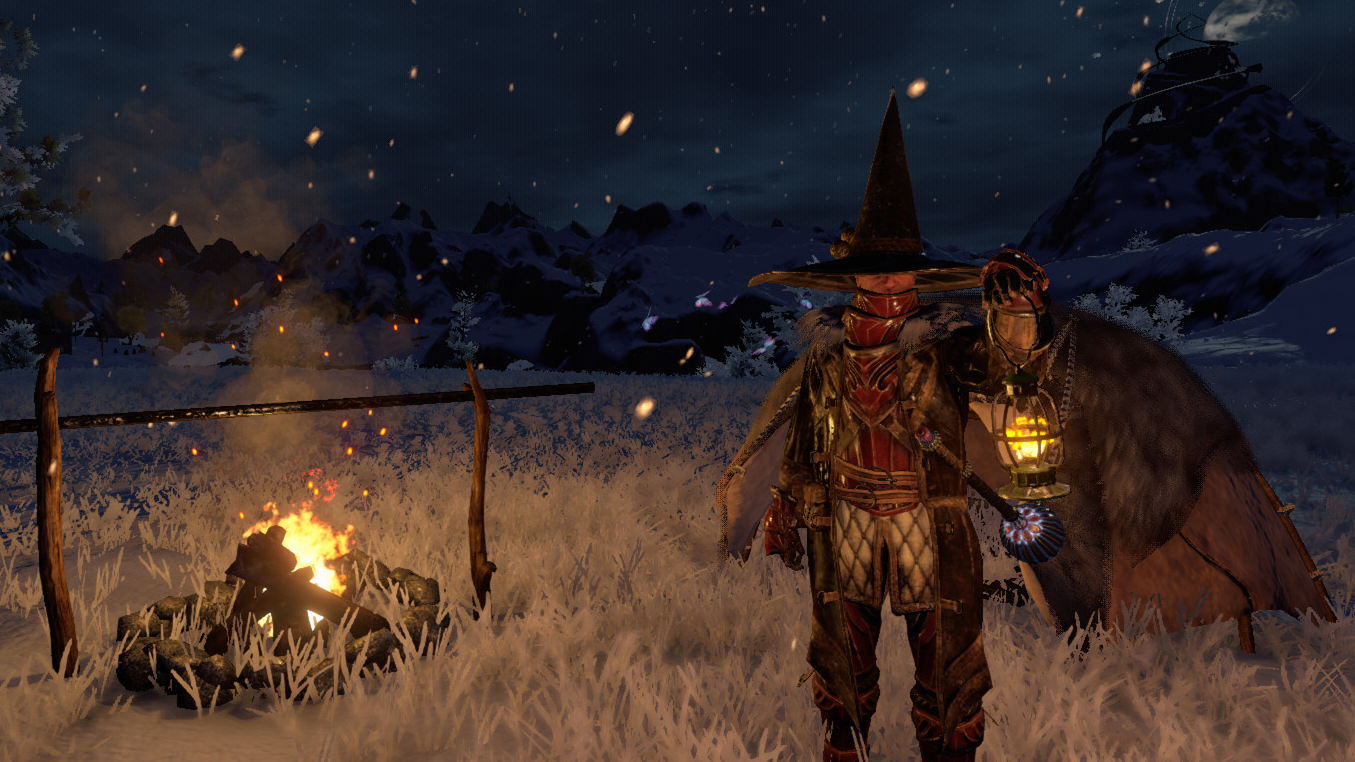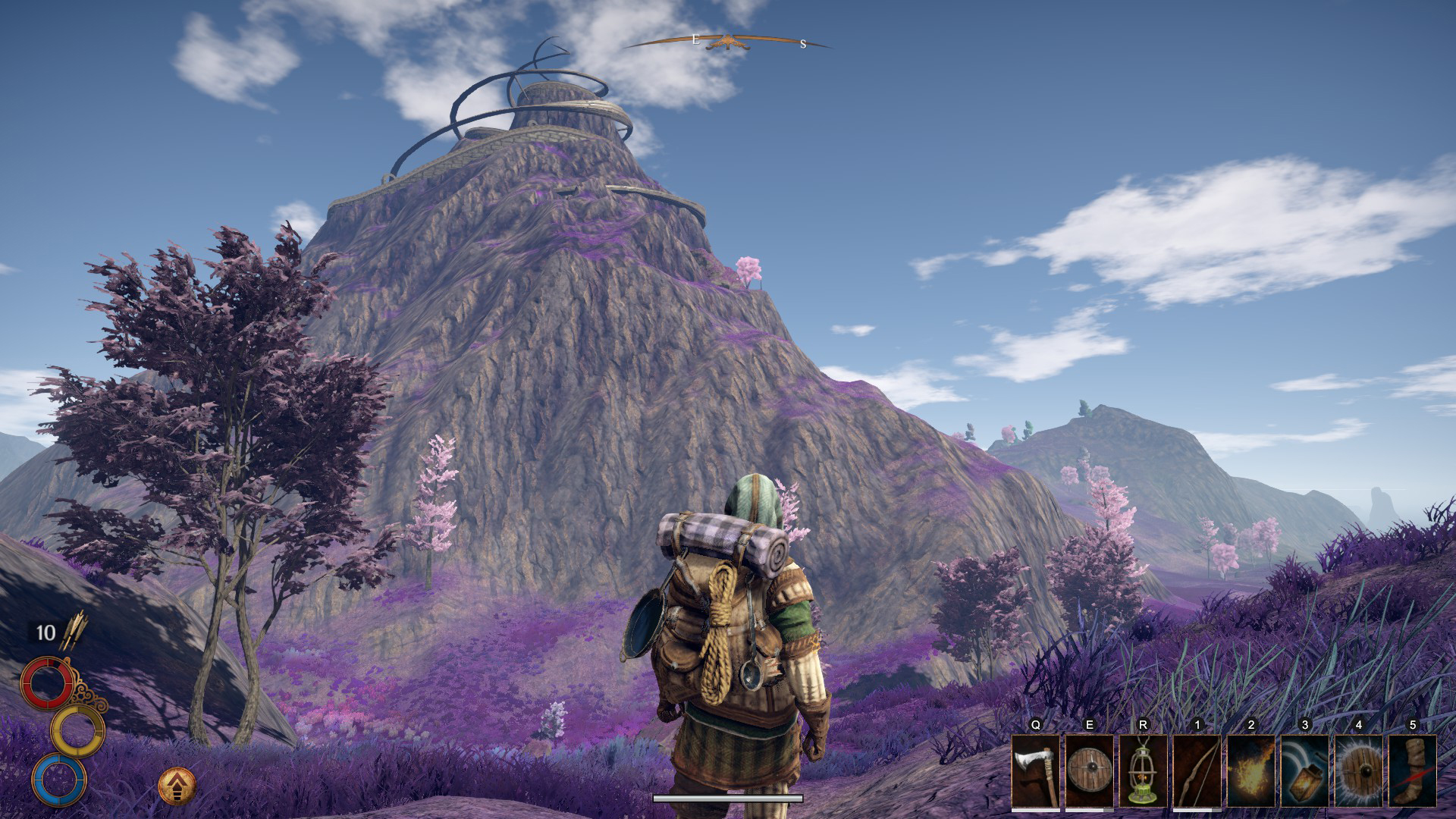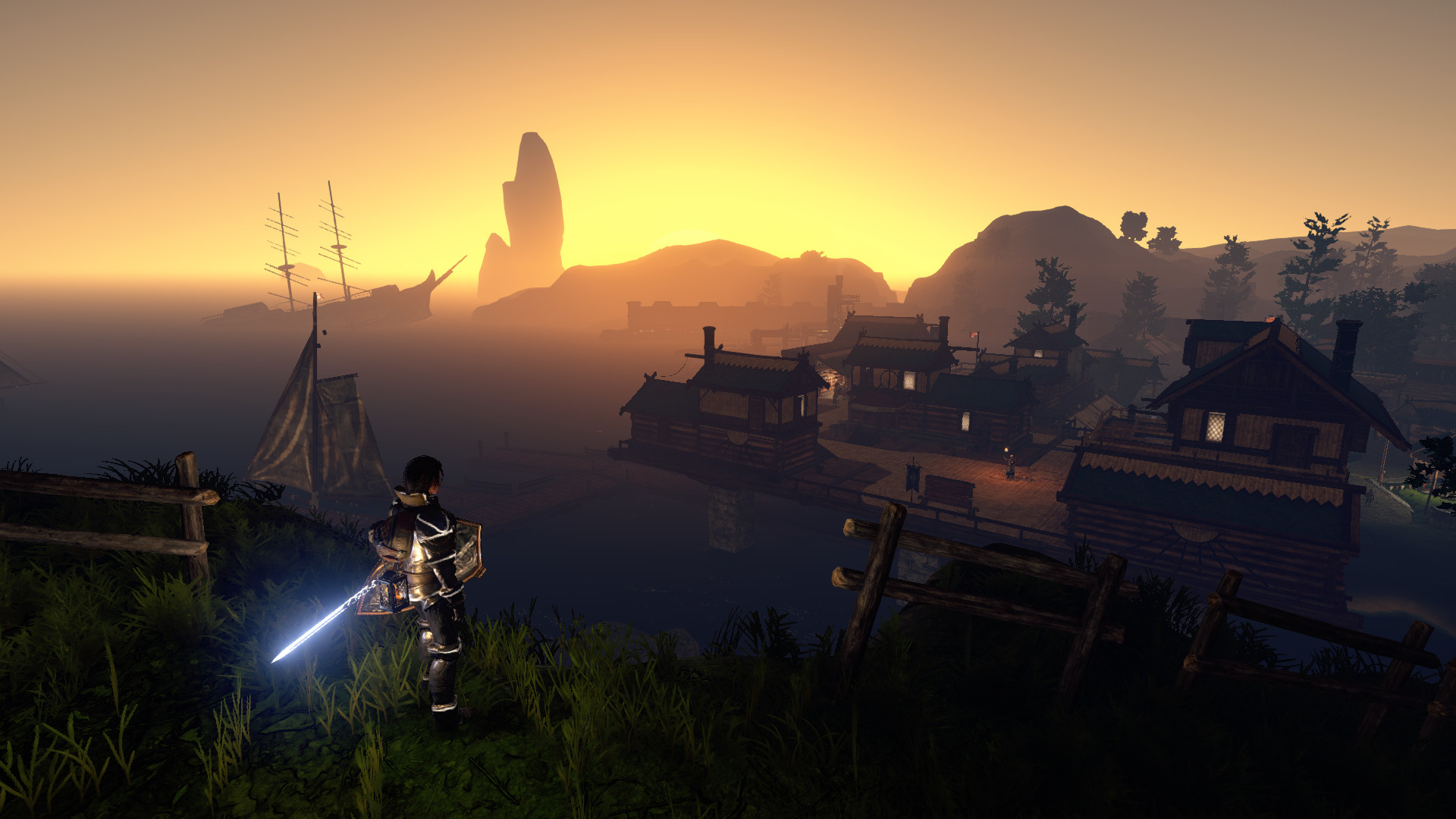You never die in RPG Outward, and that makes your character's story stronger
The developer of the fantasy survival RPG talks about how not dying lets you fail your way to success.

It's weird to think of it like this, but my character in Skyrim, the legendary Dragonborn, over hundreds hours of adventure, never once died. Technically, I mean. In reality he died a number of times, but I could always erase those deaths by reloading my last save. From a roleplaying standpoint, according to my character's actual written history (if there were such a thing), my Dragonborn never lost a fight. Never failed a quest. Never messed up. Never died. He is the perfect hero, undefeated.
I can't say the same of my character in fantasy survival RPG Outward. Like my Dragonborn he's never died, but that's only because you can't die in Outward. The RPG auto-saves your game constantly so you can never rewind time and reload an earlier save. And when you're defeated in combat, you're not killed but instead you wake up somewhere else on the map.
If this doesn't sound entirely appealing, I totally get it. I didn't like the sound of it myself before I started playing. But I've come to appreciate the auto-save and never-die systems and how they work hand-in-hand to stitch together a long, unbroken story for your character that retains not just your victories but also your failures.
At the Game Developers Conference in San Francisco last week, I talked with Guillaume Boucher-Vidal, creative lead on Outward and CEO of developer Nine Dots Studio about this unusual system in Outward and how it came about.

"When playing RPGs one of those things that remind me it's a game is that I always knew I could go back [and reload a save]," Guillaume said. "And so the story that kind of emerged from that is: you never fail."
Just like my undefeated Dragonborn. But failure can be what makes a journey interesting: Guillaume compared playing an RPG to running a game studio, where you sometimes make wrong turns and wind up making choices you regret—but those mistakes teach you something along the way. "You fail your way to success," as he put it.
In order to make choices in Outward important and give them weight, the game saves your progress constantly while you play. When you make a choice, you have to live with it, be it buying an expensive item, choosing a dialogue option in a quest, aligning with a faction, learning a skill from a trainer, or getting into a fight. Being unable to rewind to an earlier save presents a design challenge when you lose a fight, however.
The biggest gaming news, reviews and hardware deals
Keep up to date with the most important stories and the best deals, as picked by the PC Gamer team.
"I was thinking, if [Outward is] saving [your progress] all the time, we just needed to come up with a solution for what happens when you're actually defeated." The decision was to implement defeat scenarios— when you lose a fight you'll be captured by a foe, or dumped outside a dungeon, or rescued by a benefactor and wake up next to a campfire or inside the walls of a nearby city. But you don't die.

As I play Outward I've been finding that these defeat scenarios contribute a bit more to the story of my character than simply reloading a save and trying something different would. For example, there's a bandit chief in Outward, who I first met by accident—after getting a bit lost on the map I walked into a castle, thinking it was actually the entrance to the city I lived in. It wasn't. It was a bandit fort. The bandit chief mocked me (using sarcasm, the bastard), captured me, and threw me in the dungeon where he was running a forced labor mining operation. It took a lot of work but I eventually managed to reacquire my loot and escape by leaping into a pit, eventually washing up on shore, bruised, confused, freezing... and with a healthy grudge.
Later in the game a quest came up to kill this very bandit leader, and I was thrilled to accept it considering my treatment at his hands earlier. I marched back into the fort and challenged him, and he (and his bandit goons) managed to beat me unconscious. Once again, I was thrown into his prison. It took another escape, and some extra preparation of potions and spells, but the third time I walked into that fort (a few days later) I managed to kill him.
We kind of wear our defeats with pride.
Guillaume Boucher-Vidal, creative lead
If Outward had a typical save game system, it's possible most of that never would have happened. Rather than take a half-hour to escape the first time I blundered into the bandit fort, I might have simply loaded my last save and avoided it altogether, thus never forming that scathing grudge I had against him. And rather than take a while to lick my wounds and regroup after my second defeat, I may have simply reloaded and tried it again immediately. Maybe I would have beaten him that time.
Instead, I have a history with this (dead) bandit chief, which first came from an embarrassing capture, then a humiliating defeat, and then, days later, a triumphant victory. That chief was the first real tough guy I ever took on, and it's still a strong memory—and a legitimate part of my character's story—because of how Outward works.
"We kind of wear our defeats with pride," Guillaume said. "There's a story, like, this happened to me and this happened to me and this happened to me... but I am still here! That feeling is not something we see in a lot of games."
Outward is out now on Steam , on Humble, and on the Epic Store. We'll have a review of Outward in a few days. In the meantime, there's a launch trailer below.

Chris started playing PC games in the 1980s, started writing about them in the early 2000s, and (finally) started getting paid to write about them in the late 2000s. Following a few years as a regular freelancer, PC Gamer hired him in 2014, probably so he'd stop emailing them asking for more work. Chris has a love-hate relationship with survival games and an unhealthy fascination with the inner lives of NPCs. He's also a fan of offbeat simulation games, mods, and ignoring storylines in RPGs so he can make up his own.

